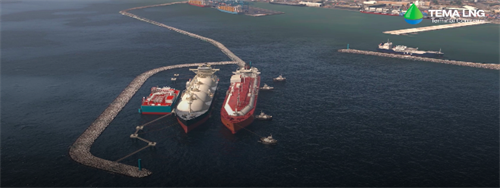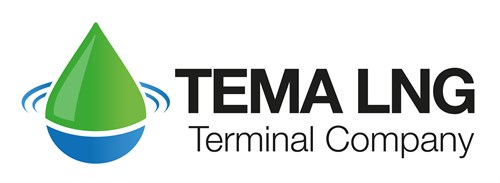ONLINE EXCLUSIVE—West Africa to reap benefits of Ghana’s new LNG supply
Author: Edmund Agyeman-Duah, Tema LNG Terminal Co.
Countries in the West African Power Pool (WAPP) are drawn together not just by their linked electricity grids, interconnected across international borders, but also by their desire to improve the regularity and cost-effectiveness of their energy supplies.
LNG is a clear opportunity to improve the energy security of the region. The interconnectedness of the nations from Senegal to Nigeria means that brave investments in one country can easily benefit the region as a whole.
With the announcement of the departure of the floating regasification unit (FRU) from China last week, Ghana has taken the lead in the development of a regional LNG supply through the Tema LNG project, the first offshore LNG terminal in West Africa, which is soon to come online.
The project represents economic progress for Ghana and West Africa and provides a multitude of opportunities for long-term growth as a stable source of low-cost, more carbon-efficient energy. It is also an example of technical innovation, involving some of the world’s most experienced engineering teams in the LNG sector.
Working with experienced engineers, we have collaborated to create an innovative design that addresses the maritime challenges in the Gulf of Guinea. This design has resulted in an offshore LNG facility that will provide year-round reliability and, therefore, a steady and secure energy source to Ghana and the wider region.
Construction at Tema began in 4Q 2018. The floating storage unit (FSU) and FRU (FIG. 1) are located within the existing Tema Port and make use of the latest LNG technology. The combination of the refurbished FSU and purpose-built FRU will provide access to globally sourced, low-carbon LNG, without expensive infrastructure.
This technology allows countries to quickly import LNG and take advantage of low prices—which dipped to record lows in 2019. These low prices are set to continue, providing an opportune moment to focus on LNG. This cost advantage will be maintained as LNG prices are set at a guaranteed discount to the fuels (diesel, HFO and crude) that they are replacing. This, coupled with the fact that the project is entirely privately financed, guarantees significant economic benefits to the countries that will receive the gas.

FIG. 1. The combination of the refurbished FSU and purpose-built FRU will provide access to globally sourced, low-carbon LNG, without expensive infrastructure.
The Tema LNG facility will have the scalable ultimate capacity to receive, store, regasify and deliver roughly 2.8 MMtpy of LNG via a subsea flexible pipeline and 18-in. onshore pipeline to an onshore pressure regulatory and metering station (PRMS). This volume is equivalent to approximately 400 MMft3/d of natural gas, or 30% of Ghana’s generating capacity, allowing LNG to displace expensive and unreliable crude oil for a cleaner, cheaper energy solution.
Our terminal will supply LNG to GNPC, allowing Ghana’s state-owned gas ‘aggregator’ to manage supply and demand in light of variable domestic supply. As the Tema LNG gas supply is de-coupled from Ghana’s existing supply infrastructure, the risk of single point failure is diminished. This will ultimately help address the persistent issue of irregular power generation.
Without Tema LNG, Ghana and the region would have to continue to rely on numerous small local gas sources, with unstable volumes and unreliable supply. Local gas in the region is vulnerable to interruption, which would negatively affect Ghana’s energy security and have wider implications on Ghana and West Africa’s development.
Thanks to world-class technology, the offshore LNG terminal can deliver a constant supply of gas to Ghana, which in turn can be exported to the rest of the region, allowing other nations to benefit from connectivity to the international market and providing a reliable and cost-efficient energy supply.
We are proud that Tema LNG will generate much-needed jobs, an estimated 1,000 roles (direct and indirect during construction and operations) in the maritime and energy sectors, and attract further investment to the region.
As the first of its kind to be implemented in sub-Saharan Africa, the Tema LNG project will spur the transfer of technological know-how and knowledge, while boosting the local economy. Our project allows Ghana to become a leader on LNG in West Africa and ensures that Ghana and the wider region continue along the path of economic growth.
About the author:
Edmund Agyeman-Duah is senior oil and gas professional with more than 10 yr of experience in the upstream and midstream sectors. He has worked on deep water development projects and in operations for Tullow Ghana Ltd., where he led the engineering team responsible for delivering brownfield modifications to de-bottleneck the FPSO and expand capacity. Mr. Agyeman-Duah joined Tema LNG Terminal Co. in 2018 and is the Project Manager on the Tema LNG project, which will deliver Sub-Saharan Africa's first marine LNG terminal and is expected to be complete and operational in 2020. In his role, he is responsible for the overall delivery of the project and has general management responsibilities, including overseeing the human resources and administration and finance functions. Mr. Agyeman-Duah holds a BEng degree in chemical engineering from the University College London.


- TotalEnergies and Mozambique announce the full restart of the $20-B Mozambique LNG project
- RWE strengthens partnerships with ADNOC and Masdar to enhance energy security in Germany and Europe
- Five energy market trends to track in 2026, the year of the glut
- Venture Global wins LNG arbitration case brought by Spain's Repsol
- Trinity Gas Storage reaches FID on Phase II expansion



Comments